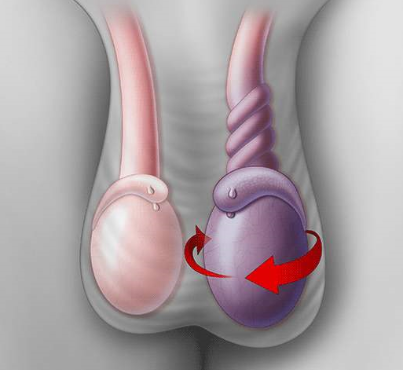Can The Size Of Testicles Affect Fertility?
Date:2024-09-14 click:0
Testicles, as the primary "sperm factories" in the male body, play a crucial role in fertility by producing tens of thousands of sperm daily. Any dysfunction in the testicles can have a significant impact on a man's ability to reproduce. A common concern for some men is whether the size of their testicles can influence their fertility. But is there a direct connection between testicle size and fertility?
The Relationship Between Testicle Size and Fertility
If testicles are abnormally small, it can impair their ability to produce sperm effectively, leading to conditions like low sperm count or even azoospermia (absence of sperm in semen). Men with particularly small testicles may face challenges with fertility or lose the ability to father children altogether. However, for most men, minor differences in testicle size are normal and are unlikely to affect fertility. In fact, it is common for the right testicle to be slightly larger than the left one.
What's Considered Normal Testicle Size?
The size of testicles can vary based on age. During childhood (up to age 12), testicles remain relatively small, with an average volume of 1 to 4 milliliters. As boys approach puberty, typically around age 12, testicular volume increases rapidly, and by adulthood, the volume ranges from 16 to 25 milliliters, with an average size of about 19.8 milliliters.
As men age, testicular volume naturally decreases. After age 60, a decline in testicle size is common, and by age 70, testicles may shrink to less than 16 milliliters. In cases where an adult male testicles are smaller than 10 milliliters, they are considered underdeveloped, which may lead to infertility and sexual dysfunction.
Causes of Testicle Size Variations
Several factors can contribute to abnormally small testicles, including congenital conditions, trauma, or illnesses that impact testicular development:
1. Congenital Dysplasia: Some men are born with abnormal testicle sizes, where one testicle may be significantly smaller and softer than the other. The larger testicle compensates for the smaller one’s functionality. This condition is known as congenital dysplasia and may not always impact fertility.
2. Testicular Trauma: An injury to the testicles can result in one testicle shrinking due to internal bleeding and reduced blood supply. Over time, the damaged testicle may become smaller, affecting sperm production.
3. Infections like Mumps and Orchitis: Men who had mumps or orchitis during childhood may have experienced damage to the epithelial cells in the testicular tubules. These cells are essential for sperm production, and their impairment can result in reduced testicle size and impaired fertility.
4. Inflammatory Diseases: Conditions like epididymitis and orchitis, often caused by bacterial infections, can also affect testicle size. If one testicle becomes swollen and painful while the other remains unaffected, it could indicate an infection. Without timely treatment, these infections can reduce sperm production, lowering semen quality and increasing the risk of infertility.
Treatment for Testicle-Related Conditions
For men suffering from conditions like epididymitis or orchitis, early treatment is crucial to preventing long-term damage to sperm production. The herbal medicine Diuretic and Anti-inflammatory Pill has shown effectiveness in treating these infections, reducing inflammation, and improving overall urogenital health. However, if symptoms persist or worsen, it is essential to seek medical attention to rule out any serious underlying conditions that may require further examination.
Conclusion
While testicle size can influence sperm production and fertility in some cases, it is important to remember that minor size differences are normal and usually not a cause for concern. However, abnormally small testicles or significant changes in size should not be ignored, as they can indicate underlying health issues that may affect fertility. Early diagnosis and treatment of testicle-related problems, such as infections or trauma, are key to maintaining reproductive health and preventing complications.
You may also be interested in:
How Does Epididymitis Kill Your Sperm?
How does Diuretic and Anti-inflammatory Pill Work on Orchitis
How does Diuretic and Anti-inflammatory Pill work on epididymitis



